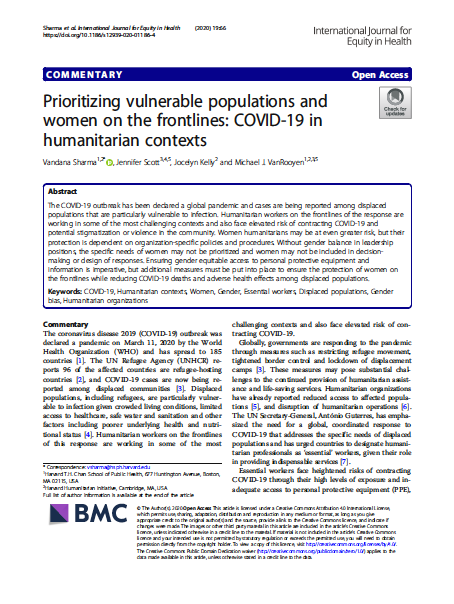The COVID-19 outbreak has been declared a global pandemic and cases are being reported among displaced populations that are particularly vulnerable to infection. Humanitarian workers on the frontlines of the response are working in some of the most challenging contexts and also face elevated risk of contracting COVID-19 and potential stigmatization or violence in the community. Women humanitarians may be at even greater risk, but their protection is dependent on organization-specific policies and procedures. Without gender balance in leadership positions, the specific needs of women may not be prioritized and women may not be included in decision-making or design of responses. Ensuring gender equitable access to personal protective equipment and information is imperative, but additional measures must be put into place to ensure the protection of women on the frontlines while reducing COVID-19 deaths and adverse health effects among displaced populations.
Sharma V., Scott J., Kelly J, VanRooyen MJ. (2020). Prioritizing vulnerable populations and women on the frontlines: COVID-19 in humanitarian contexts. Int J Equity Health. 19(66).






